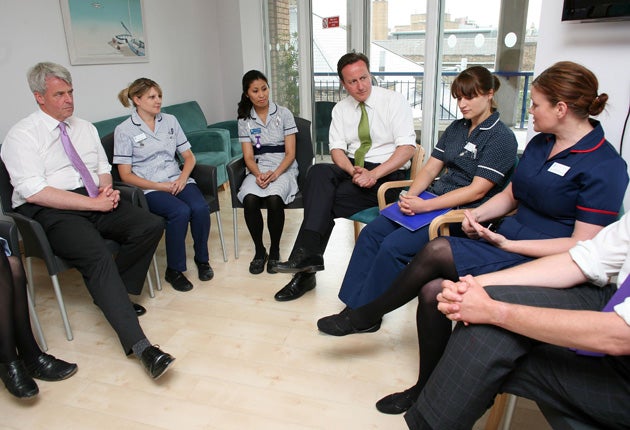Financial control devolved to GPs in huge NHS reform 'gamble'

The NHS is to be slimmed down, smartened up and democratised to deliver better quality care, Andrew Lansley, the Health Secretary, announced yesterday.
In the sixth major reform of the service in 20 years, England's 35,000 GPs will take charge of the bulk of the £105bn budget as layers of bureaucracy are swept away and patients given greater control.
Launching a white paper Liberating the NHS, Mr Lansley set out how he planned to streamline management, expand patient choice and devolve power to GPs in a drive to improve health outcomes to "among the best in the world".
Medical organisations warned the challenge of implementing the changes was "huge" and could "de- stabilise" the NHS. The Nuffield Trust said: "It is risky now to reduce central grip, given the urgent need to make efficiencies in today's economic climate."
Groups of GPs organised into consortia are to be given freedom and responsibility for buying care from local hospitals and other providers, including private organisations, in a major switch of purchasing power from central management to the surgery. They will control upwards of 70 per cent of the NHS budget, which will be managed by staff whom they will hire. The changes will not take full effect until 2013-14 and the incentives and penalties for failure have still to be clarified, but Mr Lansley said: "GPs can't generate a surplus and pocket it, nor if they fail will they become personally liable."
Patients will get more choice and control, including the freedom to register with any GP practice regardless of where they live, to choose any hospital to be treated in (as now) and any consultant, as private patients can. Unlike private patients, however, they may have to be content with seeing a member of the consultant's team.
This will be backed by an "information revolution" to involve them in their care, ensure it is designed around them and achieve what Mr Lansley summed up in a new catchline: "No decisions about me, without me." The losers in the reform are management, which is to be cut by more than 45 per cent over the next four years. The 302 Primary Care Trusts in England will by abolished by 2013, to be replaced by several hundred GP consortia; the number is not yet known. Strategic Health Authorities will also go. Other jobs will be at risk as the NHS must find £20bn of efficiency savings at the same time as it is driving through the reforms.
"This will be difficult work," the White Paper says. "Inevitably, as a result of the record debt, the NHS will employ fewer staff at the end of this Parliament... a hard truth which any Government would have to recognise."
All NHS trusts will become foundation trusts within three years and given new freedoms as part of the Government's ambition to create "the largest and most vibrant social enterprise sector in the world." Consideration will be given to abolishing the cap on the private income they can earn and whether any surplus can be re-invested in the organisation, but they will not be privatised.
An independent NHS Commissioning Board will oversee the new regime, with local councils taking over the public health element of PCTs' work.
Mr Lansley said: "The sick must not pay for the debt crisis left by the previous administration. But the NHS is a priority for reform too. So we will reform the NHS to use those resources more effectively for the benefit of patients."
Labour shadow Health Secretary Andy Burnham said 10 years of "painstaking work" to raise standards in the NHS had been "thrown in the air".
"It is a huge gamble with an NHS that is working well for patients," he said.
The coalition agreement had pledged to put a stop to top-down reorganisations of the NHS. "What's happened since the publication of the agreement to justify a U-turn of such epic proportions?" he asked.
The chief executive of the King's Fund, Professor Chris Ham, said GPs were well-positioned to take decisions on the use of resources for their patients: "The risk, though, is that not all GPs have the motivation to do so. Many don't have the skills either."
Join our commenting forum
Join thought-provoking conversations, follow other Independent readers and see their replies
Comments